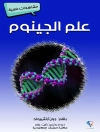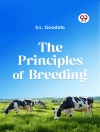This edited book covers the application of modern genomics tools for developing climate-smart oilseed cultivars. The book’s prime focus is on utilizing available oilseed genomic resources and application of next-generation genetics and breeding tools, viz. genome-wise association mapping, genomic selection, genome editing and accelerated breeding pipelines and their efficacy for rapid development and delivery of stress-resilient oilseeds cultivars.
Oilseeds are crucial for human and animal nutrition and cater to diverse industrial applications. Besides oil content, the oilseed meal possesses proteins and a higher proportion of essential amino acids, which benefit human well-being. Additionally, the contribution of oilseeds towards renewable energy mitigates the risk of climate change by reducing carbon footprint. Hence, it is imperative to enhance oilseeds production from the current 178 to 282 million tons by 2050 to meet the demands of both the population and the environment. The current genomics era delivered various genomic resources in oilseed crops, which resulted in the discovery of genes for several agronomic and stress-resilience traits and resistance to pests and diseases. Further, the availability of next-generation plant breeding tools, such as genomic selection, genome editing, and speed breeding, are being implemented along with traditional and marked assisted selection. Thus, the book is framed to compile the importance and utility of next-generation breeding tools for enhancing stress resilience in oilseed crops in the climate change era.
The book is exciting and valuable to national and international agricultural scientists, scholars and graduate students associated with oilseed crops improvement in specific and field crops in generic. The book also serves as reference in formulating various oilseed improvement programs for policymakers and research grant managers.
Inhaltsverzeichnis
Chapter 1. Introduction: Breeding Climate Resilient and Future Ready Oilseed Crops.- Chapter 2. Genomics, Pan-Genomics and Super Pan-Genomics of Major Oilseed Crops.- Chapter 3. Genetic Enhancement of Abiotic Stress Tolerance in Oilseeds through Contemporary Breeding Approaches.- Chapter 4. Breeding for Insect Pests Resistance in Oilseed Crops through Genomics Assisted Breeding.- Chapter 5. Breeding oil seed crops for resistance to fungal pathogens through genomics-assisted breeding.- Chapter 6. Genomic Approaches for Achieving Higher Nutrient Use Efficiency in Oilseeds.- Chapter 7. Application of Novel Breeding Methods to Achieve Rapid Genetic Gain in Oilseed Crops.- Chapter 8. Advances in Plant Phenotyping for Climate Resilient Oilseeds Breeding.- Chapter 9. Genome Editing: A Novel Breeding Strategy for Enhanced Stress Tolerance and Quality in Oil Seed Crops.- Chapter 10. Breeding Climate-Resilient Groundnut in the Climate Change Era: Current Breeding Strategies and Prospects.- Chapter 11. Breeding climate resilient Rapeseed-Mustard in climate change era: Current breeding strategies and prospects.- Chapter 12. Breeding Climate Resilient Soybean in Climate Change Era: Current Breeding Strategies and Prospects.- Chapter 13. Breeding climate-resilient sunflowers in the climate change era: Current breeding strategies and prospects.- Chapter 14. Adaption of next-generation breeding tools in the improvement of minor oilseed crops: Status and prospects.- Chapter 15. Breeding for high oleate oilseed crops: Opportunities, constraints, and prospects.- Chapter 16. Global Status of Genetic, Genomic and Bioinformatics Resources for Genetic Enhancement of Oilseed Crops.
Über den Autor
Manish K. Pandey completed his Ph D in Plant Genetics from Osmania University while working at ICAR-Indian Institute of Rice Research (IIRR), Hyderabad, India. He had postdoctoral research experience at the University of Georgia, USA. He currently leads the groundnut and pigeonpea genomics, prebreeding, and bioinformatics research at the International Crops Research Institute for the Semi-Arid Tropics (ICRISAT), Hyderabad, India. He is also an elected fellow of the National Academy of Agricultural Sciences, India, and his contributions are well-cited, with 11, 953 Google Scholar citations, an h-index of 60, and an i10-index of 169.
M. G. Mallikarjuna is a Scientist (Genetics and Plant Breeding) at the Division of Genetics, ICAR-Indian Agricultural Research Institute (ICAR-IARI), New Delhi, India. He earned a degree in agricultural sciences from the University of Agricultural Sciences, Dharwad, India. He completed his post-graduation from Acharya NG Ranga Agricultural University, Hyderabad, and earned a doctoral degree from ICAR-IARI, New Delhi, receiving gold medals for his outstanding academic performance. He received several research grants from various national funding agencies. His current research interests include the application of genomics and systems biology to understand the stress responses in crops and model plants, deciphering the evolutionary snapshots of gene families and stress-resilient breeding. To date, he has published 35 research articles in peer-reviewed journals, 10 book chapters, and 3 books. In addition to this, he has been involved in developing 15 hybrid varieties. He is also actively involved in post-graduation teaching and guiding research scholars in their project work.
H. C. Lohithaswa is currently working as a Professor of Genetics and Plant Breeding at the University of Agricultural Sciences (UAS), Bangalore. He holds master’s and doctoral degrees in genetics and plant breeding from UAS, Bangalore, and later served as a postdoctoral researcher at the Plant Genome Mapping Laboratory, University of Georgia, Athens, USA. He has taught many courses to undergraduate and graduate students and received several awards for his scientific contributions. His work on comparative genomics-driven marker discovery helped identify markers that work across both the Poaceae and legume lineage. He has wide experience in QTL mapping, marker-assisted selection, and genomic selection in crops, such as cowpea, pigeonpea, rice, and maize. He has successfully handled several national and international research projects and published over 150 research papers in journals with high impact factors. He was also involved in finger millet and horse gram genome sequencing. Additionally, he has developed and released 20 crop varieties.
Muraleedhar S. Aski is a Senior Scientist specializing in lentil and mungbean breeding at the Division of Genetics, ICAR-Indian Agricultural Research Institute, New Delhi. Previously, he served as a chickpea breeder at ICAR-IIPR, Kanpur. His research focuses on crop improvement using conventional, molecular, and transgenic methods. Dr. Aski earned his bachelor’s degree from UAS, Dharwad, a master’s degree from ANGRAU, Bapatla, and a Ph D in genetics from IARI, New Delhi. He has played a key role in developing 15 legume crop varieties, including a highprotein chickpea, IPC 2005-62, and India’s first biofortified lentil, L 4717 (Pusa Agethi). As a faculty member, he teaches and supervises graduate and Ph D students. His work on genetic resources, stress evaluations, and nutrient gene mapping earned him the GRISAAS 2019 Young Scientist Award. His research is well-cited, with 994 Google Scholar citations, an H-index of 17, and an i10-index of 30.
Sanjeev Gupta is a distinguished scientist in plant breeding at the Indian Council of Agricultural Research (ICAR), where he currently serves as the Assistant Director General (Oilseed and Pulses) in New Delhi. With over 32 years of expertise in grain legume genetics, he has developed 18 high-yielding cultivars, including the world’s first early-maturing mungbean variety, ‘Virat’, which matures in just 52–55 days. Under his leadership as national coordinator, mungbean and urban production have increased by over 2.5 times in just 8 years, significantly advancing India’s progress towards self-sufficiency in pulses. He has led multiple national and international projects focused on molecular marker-assisted breeding and climate-resilient agriculture. As a distinguished author, he has published nearly 125 research papers and edited 6 books, including popular titles from Springer. He is a Fellow of the National Academy of Agricultural Sciences and has received numerous awards for his contributions to agricultural science.












